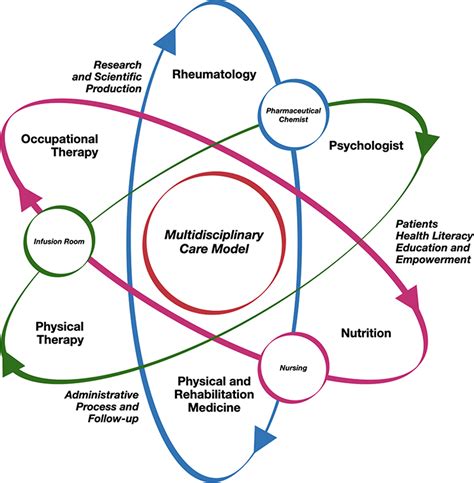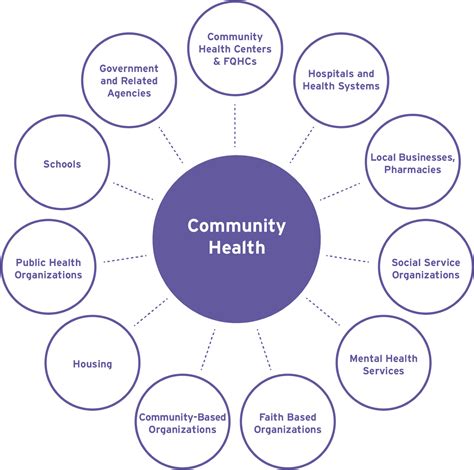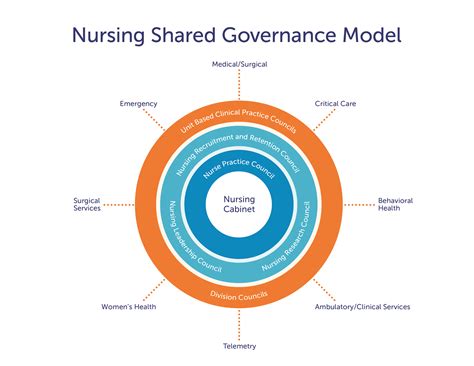Intro
Discover Kaiser Permanentes innovative healthcare solutions, featuring integrated medical care, health insurance, and wellness programs, providing comprehensive and coordinated patient care, with a focus on preventive medicine and personalized treatment plans.
The healthcare industry has witnessed significant transformations over the years, with a growing emphasis on providing high-quality, patient-centered care. One organization that has been at the forefront of this movement is Kaiser Permanente, a leading healthcare provider that has been revolutionizing the way healthcare is delivered. With its innovative approach to healthcare, Kaiser Permanente has become a model for healthcare systems around the world. In this article, we will delve into the world of Kaiser Permanente healthcare solutions, exploring its history, mission, and the innovative approaches it has developed to improve healthcare outcomes.
Kaiser Permanente's history dates back to the 1930s, when Henry J. Kaiser, an industrialist, and Dr. Sidney Garfield, a physician, joined forces to provide healthcare to Kaiser's construction workers. This pioneering effort marked the beginning of a new era in healthcare, one that focused on preventive care, community health, and integrated healthcare delivery. Today, Kaiser Permanente is one of the largest and most successful healthcare organizations in the world, with over 12 million members and a presence in eight states.
The organization's mission is to provide high-quality, affordable healthcare to its members, while also improving the health of the communities it serves. Kaiser Permanente's approach to healthcare is built around several key principles, including a focus on prevention, early intervention, and patient-centered care. By emphasizing preventive care and early intervention, Kaiser Permanente aims to reduce the risk of chronic diseases, improve health outcomes, and lower healthcare costs.
Kaiser Permanente's Healthcare Model

One of the key features of Kaiser Permanente's healthcare model is its emphasis on primary care. The organization believes that primary care is the foundation of a healthy healthcare system, and it has invested heavily in building a network of primary care physicians and clinics. Kaiser Permanente's primary care physicians are trained to provide comprehensive, patient-centered care, and they work closely with specialists and other healthcare professionals to ensure that patients receive the care they need.
Benefits of Kaiser Permanente's Healthcare Model
The benefits of Kaiser Permanente's healthcare model are numerous. By providing integrated, patient-centered care, the organization is able to improve health outcomes, reduce healthcare costs, and enhance the overall quality of care. Some of the key benefits of Kaiser Permanente's healthcare model include: * Improved health outcomes: Kaiser Permanente's emphasis on preventive care and early intervention has been shown to improve health outcomes and reduce the risk of chronic diseases. * Reduced healthcare costs: By controlling costs and improving health outcomes, Kaiser Permanente is able to reduce healthcare costs and provide affordable care to its members. * Enhanced patient satisfaction: Kaiser Permanente's patient-centered approach to care has been shown to improve patient satisfaction and enhance the overall quality of care.Kaiser Permanente's Innovative Approaches to Healthcare

One of the key innovative approaches developed by Kaiser Permanente is telemedicine. Telemedicine allows patients to receive medical care remotely, using digital technologies such as video conferencing and mobile apps. This approach has been shown to improve health outcomes, reduce healthcare costs, and enhance patient satisfaction.
Telemedicine at Kaiser Permanente
Kaiser Permanente has been at the forefront of telemedicine, using digital technologies to provide remote medical care to its members. The organization's telemedicine program allows patients to receive medical care from the comfort of their own homes, using video conferencing and other digital technologies. This approach has been shown to improve health outcomes, reduce healthcare costs, and enhance patient satisfaction.Some of the key benefits of telemedicine at Kaiser Permanente include:
- Improved access to care: Telemedicine allows patients to receive medical care remotely, improving access to care and reducing wait times.
- Enhanced patient satisfaction: Telemedicine has been shown to improve patient satisfaction, by providing patients with convenient and flexible access to medical care.
- Reduced healthcare costs: Telemedicine can reduce healthcare costs, by reducing the need for hospitalizations and other costly medical interventions.
Kaiser Permanente's Commitment to Community Health

One of the key community health programs developed by Kaiser Permanente is its health education program. This program provides patients with the knowledge and skills they need to manage their health, including information on healthy eating, exercise, and stress management.
Community Health Programs at Kaiser Permanente
Kaiser Permanente's community health programs are designed to improve the health of the communities it serves. The organization's programs include: * Health education: Kaiser Permanente's health education program provides patients with the knowledge and skills they need to manage their health. * Disease prevention: The organization's disease prevention program aims to reduce the risk of chronic diseases, such as heart disease and diabetes. * Health promotion: Kaiser Permanente's health promotion program aims to promote health and wellness, by encouraging patients to adopt healthy behaviors.Some of the key benefits of Kaiser Permanente's community health programs include:
- Improved health outcomes: The organization's community health programs have been shown to improve health outcomes, by reducing the risk of chronic diseases.
- Enhanced patient satisfaction: Kaiser Permanente's community health programs have been shown to improve patient satisfaction, by providing patients with the knowledge and skills they need to manage their health.
- Reduced healthcare costs: The organization's community health programs can reduce healthcare costs, by reducing the need for costly medical interventions.
Kaiser Permanente's Research and Innovation

One of the key areas of research and innovation at Kaiser Permanente is precision medicine. Precision medicine involves the use of genetic information and other data to tailor medical treatment to the individual patient. This approach has been shown to improve health outcomes, by reducing the risk of adverse reactions and improving the effectiveness of treatment.
Research and Innovation at Kaiser Permanente
Kaiser Permanente's research and innovation program is designed to advance the field of healthcare, by developing new treatments, technologies, and approaches to care. The organization's research and innovation program includes: * Precision medicine: Kaiser Permanente is at the forefront of precision medicine, using genetic information and other data to tailor medical treatment to the individual patient. * Digital health: The organization is also investing in digital health, using digital technologies to improve health outcomes and enhance patient satisfaction. * Healthcare innovation: Kaiser Permanente's healthcare innovation program aims to develop new approaches to care, including new treatments, technologies, and care models.Some of the key benefits of Kaiser Permanente's research and innovation program include:
- Improved health outcomes: The organization's research and innovation program has been shown to improve health outcomes, by developing new treatments and approaches to care.
- Enhanced patient satisfaction: Kaiser Permanente's research and innovation program has been shown to improve patient satisfaction, by providing patients with convenient and flexible access to medical care.
- Reduced healthcare costs: The organization's research and innovation program can reduce healthcare costs, by reducing the need for costly medical interventions.
Kaiser Permanente's Leadership and Governance

Kaiser Permanente's governance structure is designed to ensure that the organization is accountable to its members and the communities it serves. The organization's governance structure includes:
- Board of directors: The board of directors is responsible for overseeing the organization's overall strategy and direction.
- Member advisory council: The member advisory council is responsible for providing input and feedback on the organization's services and programs.
Some of the key benefits of Kaiser Permanente's leadership and governance structure include:
- Improved accountability: The organization's governance structure ensures that Kaiser Permanente is accountable to its members and the communities it serves.
- Enhanced transparency: The organization's governance structure provides transparency and oversight, ensuring that Kaiser Permanente is operating in the best interests of its members.
- Better decision-making: The organization's governance structure enables better decision-making, by providing a framework for decision-making and ensuring that all stakeholders are represented.
Kaiser Permanente's Future Directions

Some of the key benefits of Kaiser Permanente's future directions include:
- Improved health outcomes: The organization's future directions are designed to improve health outcomes, by expanding its services and programs and investing in digital health.
- Enhanced patient satisfaction: Kaiser Permanente's future directions are designed to improve patient satisfaction, by providing patients with convenient and flexible access to medical care.
- Reduced healthcare costs: The organization's future directions are designed to reduce healthcare costs, by reducing the need for costly medical interventions and focusing on population health.
What is Kaiser Permanente's approach to healthcare?
+Kaiser Permanente's approach to healthcare is based on an integrated delivery system, which brings together healthcare providers, hospitals, and health insurance under one umbrella. This approach enables the organization to provide seamless, coordinated care to its members, while also controlling costs and improving health outcomes.
What are the benefits of Kaiser Permanente's healthcare model?
+The benefits of Kaiser Permanente's healthcare model include improved health outcomes, reduced healthcare costs, and enhanced patient satisfaction. The organization's approach to healthcare is designed to provide high-quality, affordable care to its members, while also improving the health of the communities it serves.
What is Kaiser Permanente's commitment to community health?
+Kaiser Permanente is committed to improving the health of the communities it serves. The organization believes that healthcare is not just about treating illness, but also about promoting health and wellness. To achieve this goal, Kaiser Permanente has developed several community health programs, including health education, disease prevention, and health promotion.
In conclusion, Kaiser Permanente is a leader in the healthcare industry, with a commitment to providing high-quality, affordable healthcare to its members. The organization's approach to healthcare is based on an integrated delivery system, which brings together healthcare providers, hospitals, and health insurance under one umbrella. Kaiser Permanente's future directions include expanding its services and programs, investing in digital health, and focusing on population health. We invite you to share your thoughts on Kaiser Permanente's approach to healthcare, and to learn more about the organization's innovative approaches to care.
